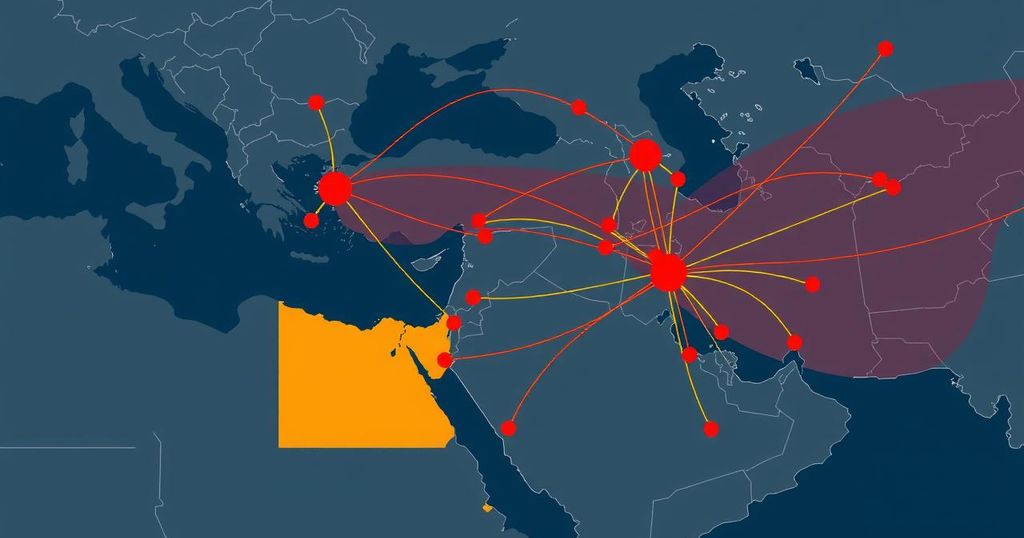The Syrian civil war has intensified international involvement, with Russia and Iran supporting Assad’s regime, while opposition forces receive backing primarily from Turkey. Gulf states initially united against Assad are now showing signs of changing strategies. The complexity of alliances amidst regional instability defines the varied responses of nations in the Middle East, with some remaining neutral, while Lebanon backs Hezbollah’s support of Assad.
The ongoing Syrian civil war has garnered significant international attention, characterized by complex alliances and interventions from various nations. Since the war escalated in 2012, the regime of Bashar al-Assad has secured military support primarily from Russia and Iran, with Russian troops actively participating in the conflict since 2015. Meanwhile, opposition forces enjoy backing from countries like Turkey, which supports rebel factions such as the Armies of Conquest.
The response from other Middle Eastern nations has been inconsistent, reflecting a lack of unity on the issue. While Gulf states such as Saudi Arabia, Bahrain, the United Arab Emirates, and Qatar initially demanded Assad’s removal by closing their embassies and calling for his ouster, Oman maintained a diplomatic relationship with the Assad government, displaying a more measured approach. Recently, the UAE has signaled potential pathways to peace that do not necessarily involve Assad’s exit.
In contrast, Yemen stands out as a supporter of Assad, with Houthi rebels joining the Syrian government against opposing forces. Djibouti has adopted a neutral stance, largely due to its geographical distance from the turmoil. Israel, bordering Syria to the north, also remains officially neutral, while Lebanon’s formal position is neutrality, albeit with Hezbollah prominently backing the Assad regime.
The civil war’s impact extends beyond Syria due to the refugee crisis affecting Lebanon and the diverse positions taken by other nations like Libya, which is divided internally, leading to a muddled stance regarding the conflict. Furthermore, the Palestinian territories and Western Sahara face dilemmas in articulating any formal position due to their unrecognized status in the region’s complex geopolitical landscape.
The Syrian civil war has evolved into a highly multifaceted conflict with regional and international implications since it began in 2011. It has witnessed numerous countries getting involved, either through direct military intervention or diplomatic engagements. Key players like Russia and Iran have committed significant resources to support Assad, while neighboring nations exhibit varied approaches, influenced by their individual political contexts. Understanding these dynamics requires an appreciation of each country’s geopolitical interests and the broader implications for stability in the Middle East.
In conclusion, the Syrian civil war serves as a vivid illustration of the intricacies of Middle Eastern politics and alliances. Key nations like Russia and Iran have bolstered Assad, while Turkey and Gulf states have voiced opposition, albeit with changing sentiments over time. The responses vary widely, shaped by geography and internal political conditions, leading to a fragmented regional perspective on the crisis, with some nations maintaining neutrality and others engaging in direct support or opposition to the Assad regime.
Original Source: www.newsweek.com






